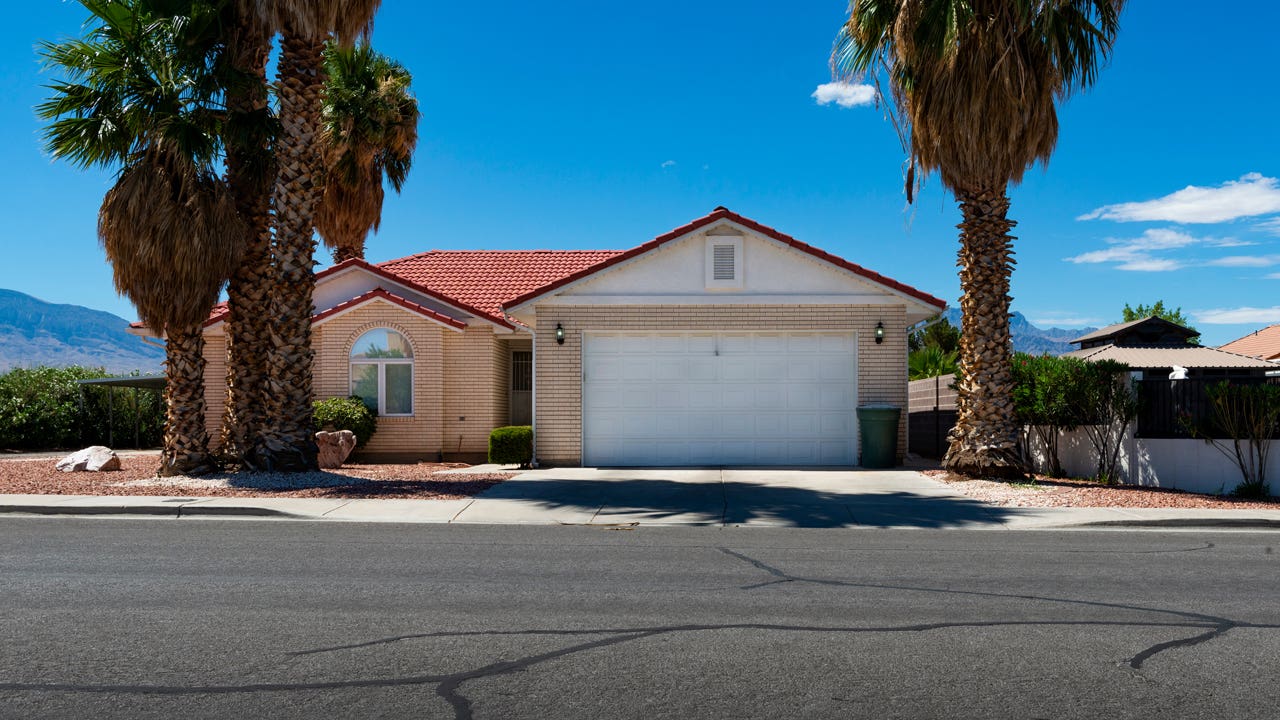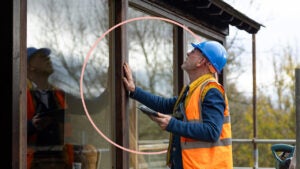Selling a home in Nevada

If you’re thinking about selling your house in Nevada right now, be prepared to join a growing crowd. The housing supply here has been increasing steadily as buyers have pressed pause on their searches in an uncertain market. According to data from Redfin, the number of homes for sale sat at nearly 19,000 in August of 2022 — a 34 percent increase versus the same time just one year earlier. More supply and less demand can create some serious headwinds for sellers, and as a result, more sellers in Nevada have been dropping their list prices to attract buyers.
Still, it’s not all bad news if you’re gearing up to list your home. Property values have surged in the state over the past two years, so you can cash in all your equity if you have the right plan in place. Read on to understand all the steps you should take to sell your house in Nevada.
Are you ready to sell?
Sell right now, or wait? That is the question to consider before putting your house on the market. If you’re trying to sell your house while buying another, it’s important to recognize the challenges of rising mortgage rates and inflation. However, if you’re thinking about downsizing or moving to a new city with a lower cost of living, selling now can still have plenty of advantages. Mortgage rates aren’t expected to drop meaningfully anytime soon, so locking in a rate today may be better than trying to do so in 2023.
Preparing to sell
If you’ve examined your personal finances and determined that now is the right time to sell, it’s time to evaluate your property to figure out how to impress buyers.
Is it worth upgrading your home before you sell?
Probably not — big upgrades require time and money, and you rarely recoup your entire investment when it’s time to sell. Ask your real estate agent about what a big remodeling project would do for your home’s chances on the market before talking to a contractor. You’re likely better off with some cheap and easy ways to boost your property value instead.
What repairs should you make before selling your home?
While you don’t need to install a brand-new shower to attract buyers in Nevada, you do probably need to fix the chipped bathroom cabinets. A Realtor can be helpful in assessing what you do and don’t need to fix in your home. Buyers have to spend a lot of money to purchase a home in the Silver State: Median sale prices stood at more than $440,000 across the state in August. They aren’t going to want to spend even more cash to deal with your old damages.
Should you pay to stage your home?
Staging your home feels kind of like dressing up for a first date: Your goal is to impress. In this case, you just want to put your best foot forward so that a buyer will feel like it’s love at first sight. The cost of staging your home varies — decluttering and organizing is much more affordable than renting furniture for your empty guest bedroom — but it can pay off in a big way. In 2021, 73 percent of staged properties sold for more than their list price, according to the Real Estate Staging Association.
When is the best time to sell a house in Nevada?
The best times to sell a house here are April, May and June, according to Redfin data. These are the months when homes have spent the fewest days on the market before going into contract, which outlines a formula for success: Less time equals more money. You want buyers to immediately look at your listing, schedule a visit and submit an offer. If it sits for too long, buyers may think they can lowball you for a better deal.
Find a local Nevada real estate agent
Working with a real estate agent can help take the guesswork out of listing your home. Realtors have a finger on the pulse of the market, and they know how to develop a strategy for a successful sale. While you might not want to pay commission fees, the numbers show that hiring an agent is an investment that delivers a serious return: The latest figures from the National Association of Realtors show that FSBO (For Sale By Owner) listings commanded $58,000 less than listings with an agent. But it’s not just about money — selling a home involves a lot of time and knowledge, too. Working to craft a listing, advertise it in the right places, coordinate showings and negotiate with buyers is more than most owners have time to handle.
One important note about real estate laws in Nevada: The state permits dual agency, which is an arrangement in which a single agent represents both the buyer and the seller. There can be an inherent conflict of interest in that setup, so you’ll have to give your written consent if you’re OK with it.
Price your home competitively
If you’ve been thinking about selling your house in Nevada, you’ve likely already used some of the common ways to figure out the property value. Online tools can be helpful in estimating what your house is worth, but they can also be a long way off from a realistic number, too. If you just completed an overhaul of your kitchen and finished your basement, an algorithm isn’t going to know about it. So, it’s important to ask your real estate agent to review a set of comps in the area. By understanding what other buyers have been willing to pay for homes similar to yours, you can have a good starting point for your list price.
Don’t just think about the recent past, though. The housing market can change rapidly when interest rates rise or fall, so aim to put yourself in a buyer’s shoes. What price range would make you want to look at your house? And what kind of price might seem unrealistically high?
Documents and disclosures in Nevada
Like many states, Nevada requires sellers to complete a property disclosure form listing any known information about issues that could negatively impact its value or another owner’s ability to use it. You’ll need to indicate whether there are any problems that affect the roof, foundation and a range of systems in the home, like heating and air conditioning. If your home is part of a homeowners association, you should also be prepared to gather a range of documents about the organization’s financial health, bylaws that owners must follow and past meeting minutes of the HOA board.
Need to sell your home fast?
No time to waste? Think about these three options if you need to sell your house fast. But keep in mind that speeding up a sale will likely mean missing out on some profit potential.
- iBuyers: Several large iBuyers — companies that provide automated offers in less than 24 hours and promise a speedy path to closing — operate in some of the most populous parts of Nevada. RedfinNow, Offerpad and Opendoor are all currently buying homes in the Las Vegas area or Reno. You won’t pay commission fees to a real estate agent with an iBuyer, but be sure to read the fine print: These companies may charge hefty service fees.
- Selling for cash: When you sell to a company that buys houses for cash, you don’t have to wait for an individual buyer’s financing to be finalized. This is a particularly good option if your home needs a lot of work, as these businesses tend to be real estate investors looking for a deal.
- Listing as-is: One of the reasons that selling a home takes such a long time is that buyers tend to haggle for concessions based on home inspection findings. An as-is listing eliminates that negotiation: It’s an upfront disclaimer that any buyer is going to have to deal with repairs on their own dime.
The closing
Selling a house isn’t free, in Nevada or anywhere else. When it’s time to close, you will have plenty of expenses to pay for before the deal is done. For starters, about 6 percent of the sale price will go toward covering commission fees for the two real estate agents involved. Then, you’ll need to consider a range of other fees.
Cost of selling a home in Nevada
In 2021, closing costs on a home sale in Nevada added up to $6,383, according to ClosingCorp. You aren’t responsible for that entire bill, though: The buyer will pick up a chunk of it. Here’s a rundown of the main expenses that should be in your home-selling budget.
- Title insurance: The seller usually covers the cost of a title insurance policy in Nevada. However, it’s negotiable. If you do wind up paying for it, the price will depend on the value and the location of the home. Title insurance rates vary by county.
- Transfer taxes: You will split the cost of real estate transfer taxes down the middle with the buyer. Across most of the state, the rate is $1.95 for every $500 of value, but there are additional costs in Clark County ($0.60 extra for every $500 of value) and Washoe and Churchill counties, where buyers and sellers must split an additional $0.10 tax on every $500 of value.
- Attorney fees: The state of Nevada does not require you to enlist a real estate attorney when you’re selling your house. However, it’s smart to hire a lawyer anyway to help you deal with the maze of contract language, paperwork and closing costs.
- Concessions: If a buyer’s home inspection finds any areas that need to be repaired, be ready to deal with a request to cover part of their closing costs. This is not unusual. It’s up to you whether to agree, and it will ultimately eat into some of your proceeds from the sale.
Keep in mind that there may be other small costs, such as document preparation fees and escrow fees, that will factor into your final walk-away amount.
Take the first step
If you’re ready to put your home in the Silver State on the market, you need to put together the right team to make it happen. Set up interviews with a few different real estate agents, and ask plenty of questions to get a sense of how they will approach your business.
FAQs
-
The best way to sell a house in Nevada is to hire a real estate agent to help you craft and market the listing. A real estate attorney is not required, but it’s smart to have one when there’s this much money at stake. While you’ll pay for their professional services, working with a Realtor and an experienced lawyer will ensure that you are maximizing your profit potential and fulfilling all your legal responsibilities.
-
Be prepared to complete the state’s property disclosure form and share any knowledge of issues that impact structure and systems — plumbing, electrical, HVAC, roof, foundation and more. You’ll also need to answer a range of questions about other areas of the property, including whether you know of any problems with the soil, flood damage, mold and more. If your house is part of a homeowners association, you’ll have to disclose information about that as well.
-
It’s possible to sell your house on your own in Nevada, but be prepared to put in some serious work. You’ll need to do the heavy lifting that a real estate agent would do — craft a listing, advertise it, schedule showings and open houses, negotiate offers and more. It’s time consuming, and it’s not easy. Even if you don’t hire an agent, you should still consider hiring a real estate attorney to draw up the terms of the deal and check off all the legal requirements for selling and transferring property.
Why we ask for feedback Your feedback helps us improve our content and services. It takes less than a minute to complete.
Your responses are anonymous and will only be used for improving our website.






